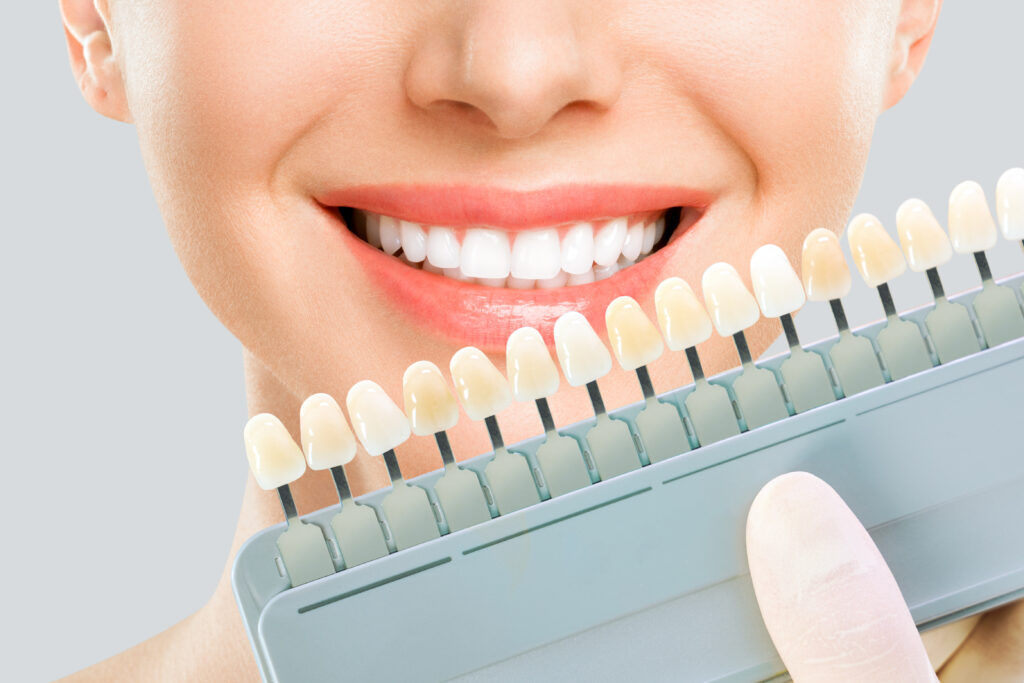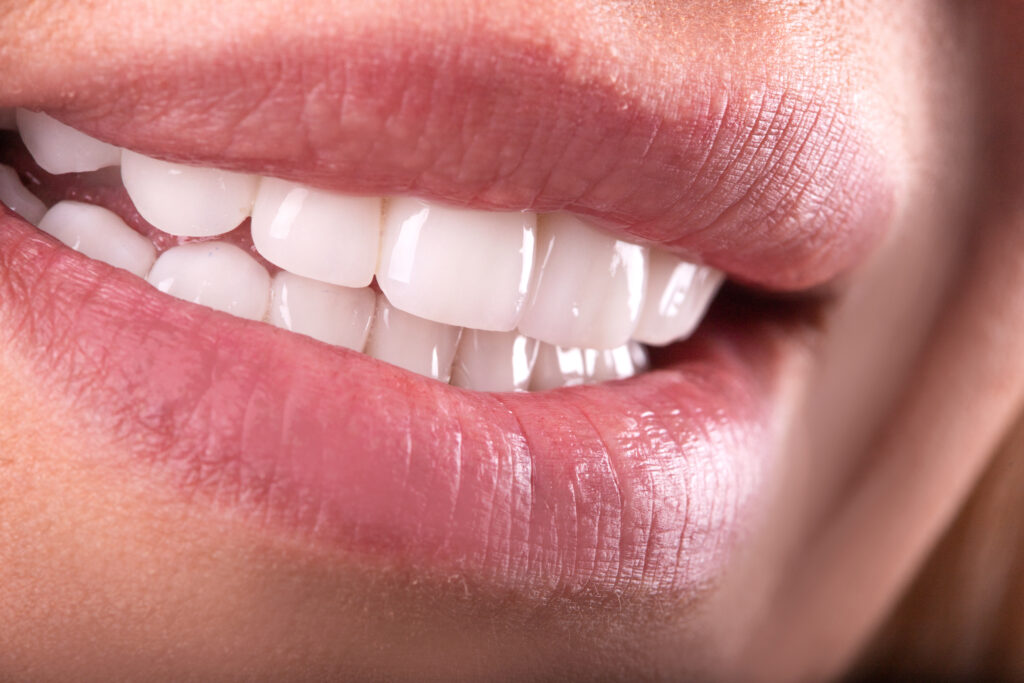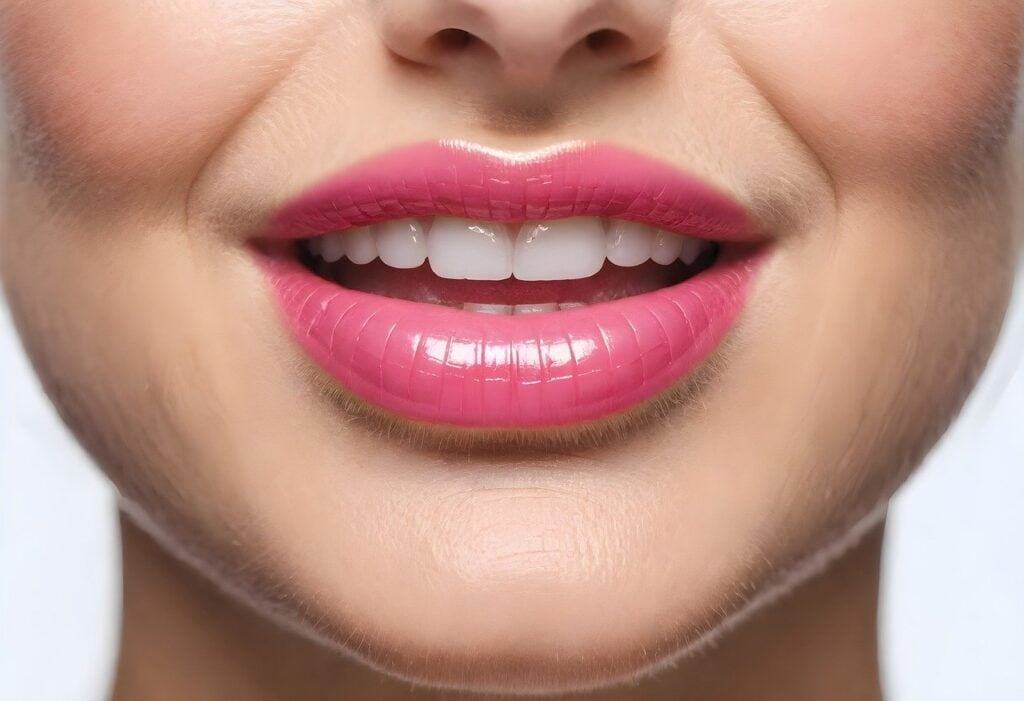What Is Dental Bonding?
Dreaming of a smile makeover? Dental bonding is a simple yet transformative solution to minor cosmetic dental concerns. At Acts Dental, Perth Dentists specialise in this quick procedure that’s sure to bring back your confident smile. Dive into this article to learn about the magic of dental bonding and how it can be your smile’s best friend.
Smile Makeover: The Magic of Dental Bonding
Ever heard of a magic trick that can transform your smile almost instantly? Welcome to the world of dental bonding! It’s like a fairy godmother’s wand for your teeth; only instead of fairy dust, your dentist uses a special material known as composite resin.
So, what is dental bonding, and why is it such a game-changer? Dental bonding, or teeth bonding, is one of the simplest and quickest cosmetic dental procedures available. Imagine having small imperfections on your front teeth – perhaps they’re chipped, discoloured, or have slight gaps. With dental bonding, your dentist applies the composite resin to your teeth. This resin is then shaped to blend seamlessly with your surrounding teeth, effectively masking those minor flaws.
Dental bonding offers a quick, painless, and cost-effective way to achieve a smile makeover, ensuring every flash of your pearly whites is picture-perfect.

Dental Bonding Procedure: Step-by-Step
With dental bonding, your smile can undergo a swift and striking transformation. The magic of this cosmetic procedure lies in its ability to make minor adjustments with major impacts.
Pre-Treatment Preparation
There’s a little prep work before diving into the main cosmetic dental procedure. This stage involves choosing the right shade of tooth-coloured composite resin that matches your natural teeth perfectly. No one would ever want a mismatched tooth stealing the show! Most of the time, you won’t even require anaesthesia unless the tooth has a decayed spot.
The Bonding Process
Once your tooth is all prepped and ready to go, the actual fun begins. First, the tooth surface is roughened slightly to ensure a firm grip. A conditioning liquid is applied, creating a strong bond between your tooth and the bonding material. Afterwards, the chosen composite resin material is gently applied and moulded onto your tooth. Imagine it like clay – it’s shaped and sculpted to achieve the desired shape, ensuring it complements the surrounding teeth.
Shaping and Polishing
Now, we’re onto the finishing touches! Ultraviolet or UV light is used to harden that composite resin onto the bonded tooth. Once firmly in place, your dentist will trim away any sharp edges and polish the tooth to perfection. It ensures that the newly bonded tooth looks good and feels just like the real thing.
Dental Bonding Material
Dental bonding is a popular cosmetic procedure where a composite resin material is applied to a tooth to improve its appearance. The primary bonding materials used in this process are composite resins. These resins are favoured for their ability to mimic the natural appearance of teeth because they are tooth coloured. It ensures a seamless blend with the surrounding teeth, giving a natural look after the procedure is completed.
Teeth Bonding vs. Veneers and Crowns
When considering cosmetic dental procedures, there are several options available. Here, we delve into teeth bonding, veneers, and crowns to help you make an informed decision.
Advantages and Disadvantages
Tooth bonding, or composite bonding, is a procedure where a dental professional applies a tooth-coloured composite material to the tooth to improve its appearance. This cosmetic procedure is great for those who want a quick cosmetic improvement. Unlike the more intense dental restoration methods, dental bonding is less invasive and can be completed in a single visit. However, it might not last as long as veneers or crowns.
Porcelain veneers, on the other hand, are thin shells custom-made to fit over the front surface of a tooth for cosmetic purposes. They offer longer-lasting results and can address a variety of cosmetic concerns. However, veneers may require some removal of the tooth’s original structure, making it an irreversible procedure. (Porcelain veneers tend to be more stain-resistant and can reflect light similarly to natural teeth, which is why they are often preferred.)
A porcelain crown is essentially a cap placed over a tooth. It is an ideal choice when there’s a severely decayed tooth or following a dental implant procedure. Crowns provide functional and cosmetic improvements but involve a more intensive process than composite bonding.
Cost Differences
Teeth bonding is generally the most affordable of the three cosmetic dental procedures. Visiting the dentist for dental bonding typically costs less than opting for porcelain veneers or a porcelain crown.
Suitability for Different Dental Issues
For minor injuries or imperfections, tooth bonding is often the go-to choice. Porcelain veneers might be your best bet if you want to correct more significant cosmetic concerns. Porcelain crowns offer comprehensive coverage and protection for those with a severely damaged tooth.
In any case, consult a Professional South Perth Dentist to decide which procedure best aligns with your oral health needs and aesthetic desires.
Applications of Dental Bonding
Dental bonding is a versatile procedure that offers various solutions to improve the appearance and health of one’s teeth. Let’s explore its many applications:

Fixing Chips and Cracks
Whether it’s due to an unfortunate slip or certain oral habits like biting on hard objects, you might find yourself with a chipped tooth or even a broken tooth. But don’t panic! Dental bonding is here to the rescue. The South Perth Dentist can skillfully repair those chipped teeth or cracks using a composite resin colour that matches your teeth. Once the procedure is done, it’ll look as if the tooth was never broken.
Improving Discolouration.
Over time, our natural teeth might become stained or discoloured for various reasons, perhaps from dietary choices. With tooth bonding, those discoloured teeth can be made over, resulting in a brighter, more consistent shade, especially for the front teeth.
Reshaping Teeth
Ever felt that some of your natural teeth looked uneven or too short? Dental bonding can help there too! Whether it’s a chipped tooth or short teeth, tooth bonding can be used to mould and shape teeth, giving you that harmonious smile you’ve always wanted.
Filling Gaps Between Teeth
While some people adore the unique charm of a gap between their front teeth, others might wish to close that space. Tooth bonding also offers a solution here, allowing the dentist to fill those gaps and create a more uniform appearance.
Dental Bonding for Children
Dental bonding in pediatric dentistry repairs and improves the appearance of children’s teeth with minimal discomfort. This quick, one-visit procedure uses a tooth-colored resin to restore damaged teeth, which is crucial for a child’s oral health and self-esteem.
Aesthetic and Health Benefits of Dental Bonding
Dental bonding is more than just a cosmetic fix; it offers various advantages for your teeth’ look and health. Let’s dive into these benefits:
Enhanced Appearance. With the dental bonding procedure, a dentist uses a composite resin colour to fix imperfections in your teeth. By using a shade guide, they ensure that the bonded material matches your teeth perfectly. This precision means that once the procedure is complete, your smile looks more radiant and consistent, enhancing your overall appearance.
Protection of Teeth. The dental bonding procedure isn’t just for looks! It plays a vital role in shielding vulnerable areas of a tooth, especially where the enamel might be weakened or gone. This protective layer helps prevent further damage or decay, ensuring your teeth remain strong and healthy. While dental bonding provides a protective layer, it may not necessarily “ensure your teeth remain strong and healthy” on its own. Good oral hygiene practices and regular dental checkups are crucial in conjunction with any dental procedure to maintain strong and healthy teeth.
Non-Invasive Nature. One of the standout features of dental bonding is its non-invasive nature. Unlike veneers that require the removal of tooth structure, dental bonding focuses on adding the composite resin to the existing tooth. It means less discomfort and a quicker recovery time, making it a preferred choice for many who visit the dentist.

Life with Bonded Teeth: Maintenance and Aftercare
Now that your teeth have been beautifully bonded, it’s essential to know how to maintain them and ensure they remain in tip-top shape!
Oral Hygiene Recommendations
Maintaining good oral hygiene practices is key. Brush and floss daily to keep the bonding material clean and free from plaque or stains. Consider using a non-abrasive toothpaste to ensure the bonded area isn’t worn down prematurely.
Regular Dental Check-Ups
Just as with your natural tooth, a bonded tooth requires regular check-ins with your dentist. These visits help ensure the bonding remains intact and allow your dentist to address potential issues early on.
Foods to Avoid
While a bonded tooth is durable, avoiding certain foods and drinks that can stain or damage them is best. Be cautious with beverages like red wine, which can discolour the bonding material. Also, avoid biting into extremely hard foods, which could chip the bonded area. With proper care, your bonded teeth will remain a shining testament to your commitment to oral health!

Frequently Asked Questions
Is dental bonding safe for everyone? Dental bonding is generally safe for most individuals. However, consulting with a dentist is essential to ensure it’s the right choice for your specific oral health needs and conditions.
Can dental bonding be reversed or removed? Dental bonding is generally considered a reversible process because it involves minimal alteration to the structure of the natural tooth. If necessary, the composite resin can be removed or altered by a dentist.
How long does tooth bonding last? While the bonding material lasts anywhere from 3 to 10 years, its longevity can depend on factors like the bonding location, the patient’s oral habits, and the quality of aftercare. Regular dental check-ups and good oral hygiene can extend its lifespan.
Are there any dietary restrictions after getting dental bonding? It’s recommended to avoid biting into very hard foods and minimize consumption of foods that could stain the resin, such as coffee, tea, and red wine, especially in the first 48 hours after the procedure.
Is it painful? Dental bonding is typically a painless procedure. Some patients might experience slight discomfort or sensitivity, especially if the bonding is applied near the tooth’s nerve. However, in most cases, anaesthesia isn’t required.
What should I do if the bonded tooth chips or breaks? If the dental bonding chips or breaks, contact your dentist promptly. In many cases, the bonding can be easily repaired or replaced in a single visit.
Is dental bonding suitable for children? Dental bonding is suitable for children, especially as a quick fix for minor chips and cracks. It’s less invasive and can be a temporary solution until a more permanent treatment is appropriate.
Can dental bonding whiten my teeth? While dental bonding cannot whiten teeth, it can be used to cover stains that don’t respond to traditional whitening treatments, effectively improving the color and appearance of discolored teeth.
Does dental bonding affect my daily oral hygiene routine? Dental bonding does not require any special care. Continue brushing twice a day and flossing regularly. However, using a non-abrasive toothpaste and a soft toothbrush can help maintain the integrity of the bonding.
How quickly can I return to normal activities after bonding? You can return to your normal activities immediately after the procedure. However, as the resin is setting, it’s advisable to avoid eating or drinking anything that could stain for the first few hours.
How much does dental bonding cost? The cost of dental bonding varies based on the complexity of the procedure, how many teeth are being bonded, the dentist’s experience, and geographical location. The average cost can range from $100 to $400 per tooth, but it’s best to consult a dentist in your area for a precise estimate. Some dental insurance might cover part or all of the cost, depending on the reason for the procedure.

ACTS Dental: Your Dental Bonding Experts in Perth
Dreaming of that perfect smile? At Acts Dental, we combine expert knowledge with cutting-edge technology to give exceptional dental bonding results. As Perth’s trusted dental bonding specialists, we are committed to brightening your smile.
We take pride in being a HBF preferred provider, HCF preferred provider, NIB preferred provider, Bupa preferred provider, and Medibank preferred provider dentist in Perth allowing us to offer flexible payment plans and accommodate various health fund benefits.
Don’t wait; transform your smile and boost your confidence. Book your consultation with us today by calling (08) 9474 5083 or book online and embark on a journey to a more radiant you!


